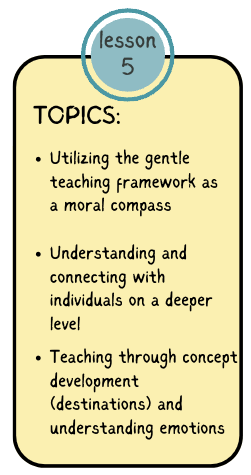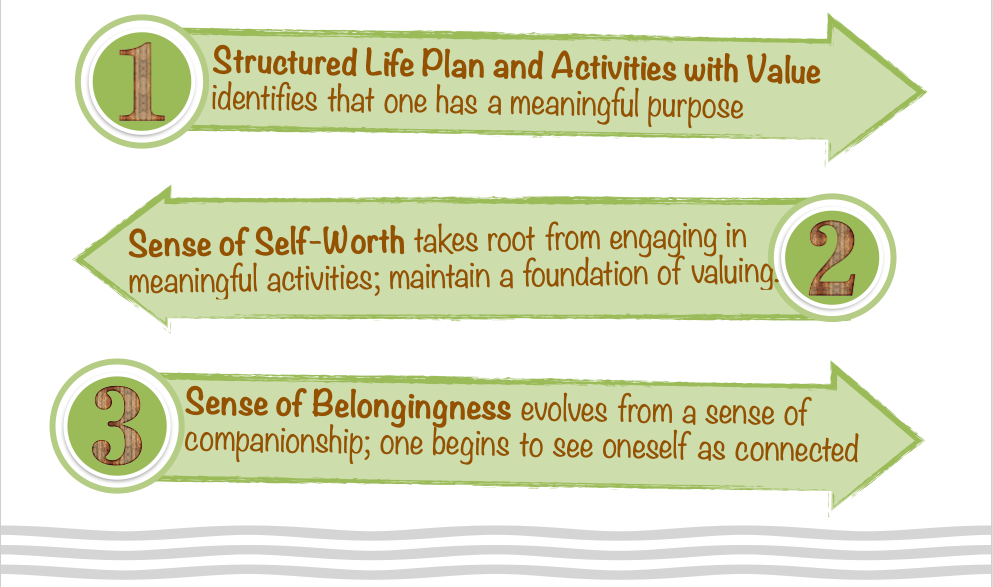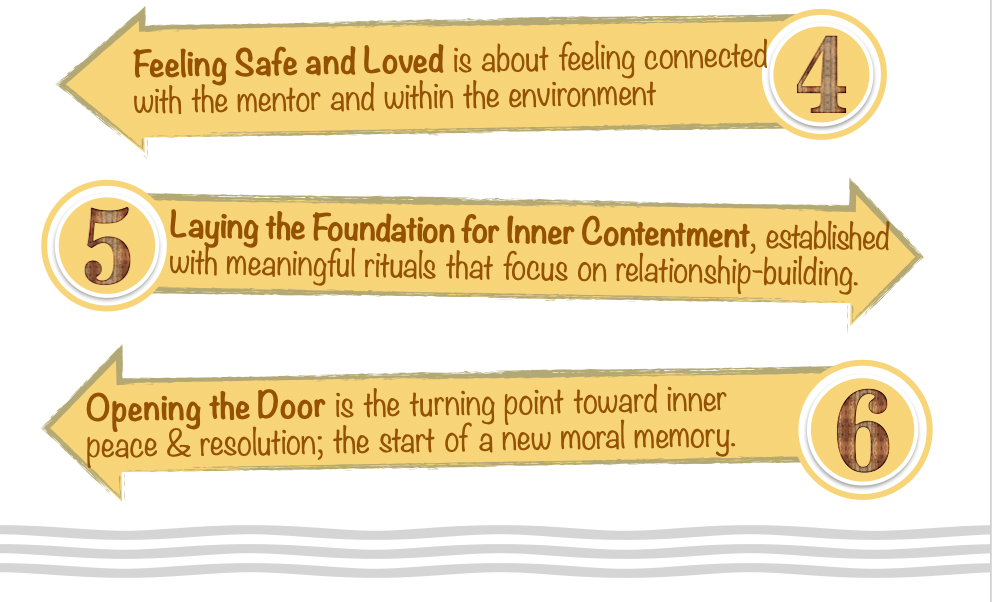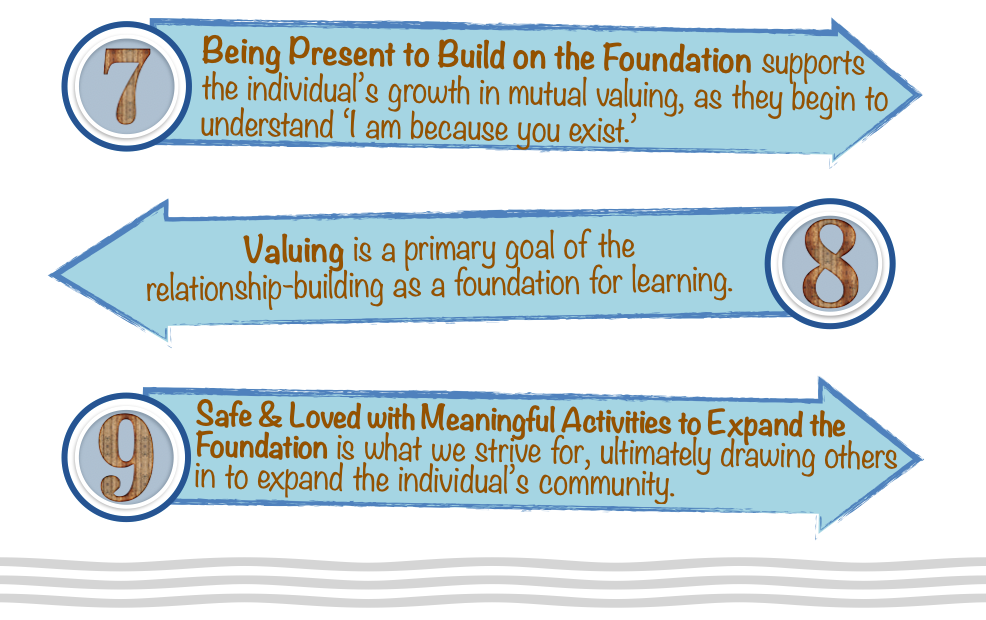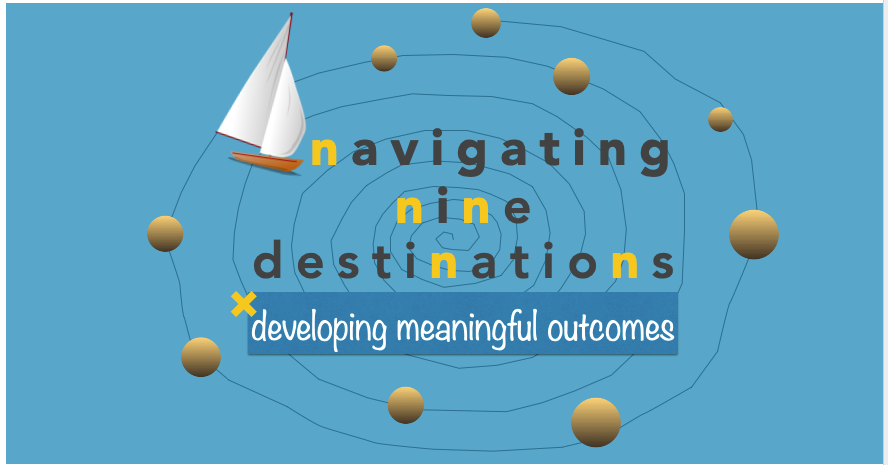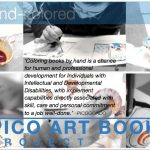Gentle Teaching incorporates the moral compass of companionship and community with an ethic for dialogue and narrative.
Resolving conflict by making a connection, not a correction discusses the elements and conditions of turbulence and identifies what is happening in the relationship as a crisis arises. Providing the needed assurance supports intrinsic motivation that more naturally seeks continuation and engagement beyond “the storm”,as we continue cultivating companionship and building the relationship.
Teaching through concept development introduces destinations that are goal areas for the journey that explores, together, the social-emotional landscape. After assessing where we are with this person and identifying the area of human development that most needs to feel safe and loved, dialogue is developed for prompting visualization and engagement that focuses on navigating the heart to a destination that connects inward processes with relational and foundational meaning and value.
The relationship-building dynamic that evolves between a service provider or support staff and the Individual, shapes the social structures (companionship and community) that give mobility to mentoring processes. The relationship itself serves as the vehicle for navigating the heart and for preparing the course of destinations that teach, build upon, and expand from the Four Pillars of Gentle Teaching: feeling safe, loved, loving, and engaged. As we teach these four foundational lessons, mentoring gentleness invites and engages one’s unknown capacity for intrinsic processes of social awareness. The social vision of Gentle Teaching focuses on who this person is, rather than on what they can or cannot do, or on judging what they are doing.
A basic principle of Gentle Teaching is to not let the valuing of others be contingent on conditions. Valuing without conditions (unconditional love) is practiced in addressing social-emotional barriers that tend to define existence. These barriers include feelings of isolation, disconnection with self and others, a lack of meaning for one’s life, a lack of purpose or value, disorientation brought about by mental instabilities and disorders, or oppressive, abusive, or other unpredictable environments, including homelessness. Even transitioning to an assisted living home or care facility can break the spirit, impact a sense of belonging, or alter one’s sense of who they are and where they are, especially if they are succumbing to these changes without the support of meaningful connections.
Following is a summary of 9 destinations that support navigating the heart through concept development and the understanding of emotions. Working with these 9 destinations expands and supports the intrinsic motivation and foundation of SELF concepts, cultivating the inward landscape with meaningful connections for awareness and growth.
Destinations 1, 2, and 3 lay the foundation of companionship, of feeling safe and unconditionally accepted. Overall well-being and quality of life relate to eight, universal human values that illustrate one must be actively involved with daily activities to develop a sense of self-worth.
Destinations 4, 5, and 6 build on the foundation that becomes grounded in the processes of the first three destinations that establish trust and curiosity for engagement, and that form the companionship dynamic.
Destinations 7, 8, and 9 expand the foundation as we learn together, to do things with and for others. These destinations support awareness and growth, based on one’s ability to problem-solve, connect ideas together, and to take initiative with ideas.
